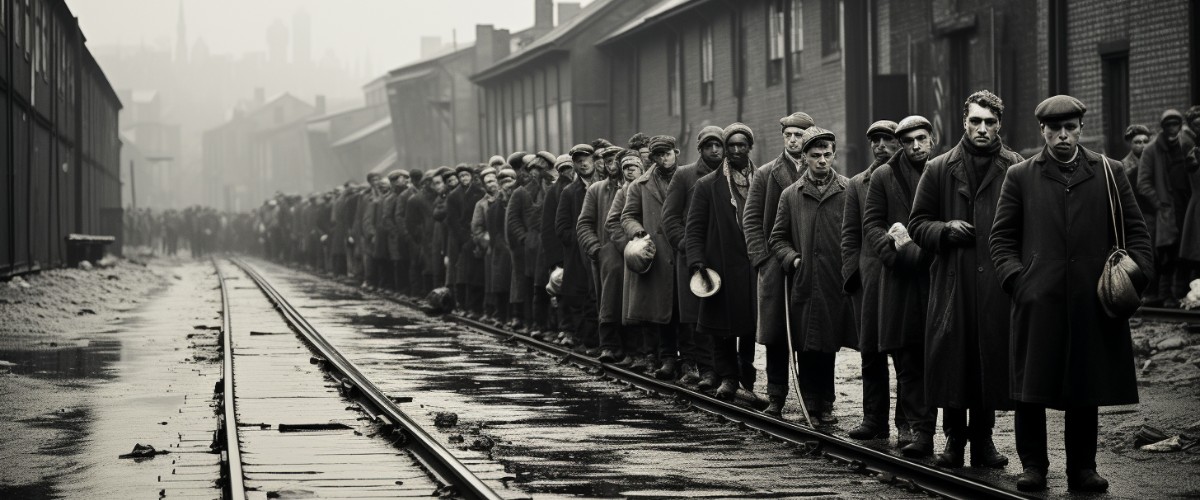Once upon a time, in the Roaring Twenties, people in the United States were having a whale of a time. The economy was booming, people were spending money like there was no tomorrow, and the stock market seemed to be on an unstoppable upward ride. It looked like the good times would roll on forever. But, as the saying goes, what goes up must come down.
The stock market crash of 1929 burst the economic bubble and plunged the country into the darkest period in its economic history: the Great Depression. Suddenly, millions of people who had been living the high life found themselves jobless and poor. Banks failed, businesses shut down, and in the span of a few years, the national income was cut in half. It was a shocking reversal of fortune that affected nearly everyone.
The 1930s was a decade marked by bread lines, soup kitchens, and shanty towns called “Hoovervilles” – named after President Herbert Hoover, who was in office when the Depression began. The lack of jobs and the harsh living conditions made it a tough time for many. Yet, even in the midst of this hardship, there were people and businesses that managed to hold onto their wealth or even increase it. Some folks invested in industries like entertainment and manufacturing, which eventually recovered and became profitable again.
Fast forward to 1933, and the country elected a new president, Franklin D. Roosevelt. He introduced a series of programs and reforms called the New Deal to help the nation recover. These included policies to stabilise the banking system, provide relief for the unemployed, and boost the economy through government spending on public works. Roosevelt’s approach was a bold experiment that had never been tried before on such a large scale.
The recovery from the Great Depression was slow and difficult. It wasn’t until World War II, in the 1940s, that the economy finally bounced back fully. The war effort created jobs and stimulated industries like manufacturing and construction. The government also continued to play an active role in managing the economy, a change that has lasted to this day.
The Great Depression was a turbulent time of wealth, poverty, and eventual recovery. It changed the way people thought about the economy and the role of government. And while we hope never to see another economic downturn like it, the lessons learned from this time continue to shape our world today.








